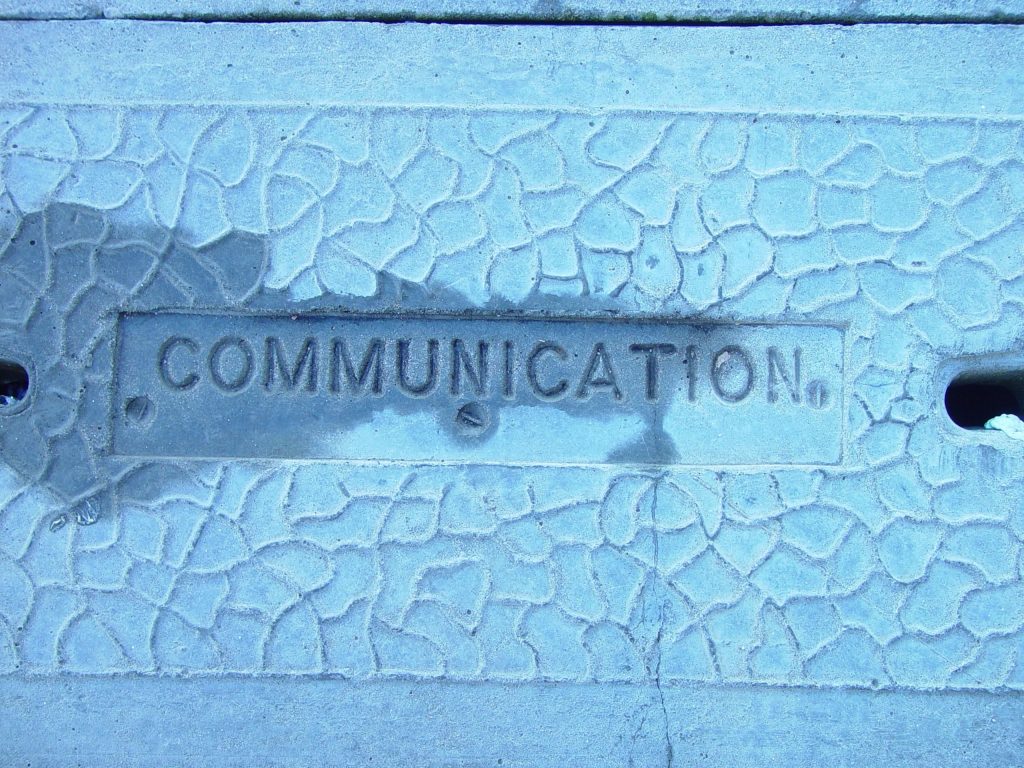 When a married couple welcomes a new child, the father is presumed to be the legal father. In many cases, the legal father is also the biological father. Unfortunately, there are cases when biological and legal fathers exist separately. What legal rights and remedies does a biological father have to this child? The timing of legal action is critical to answering the question.
When a married couple welcomes a new child, the father is presumed to be the legal father. In many cases, the legal father is also the biological father. Unfortunately, there are cases when biological and legal fathers exist separately. What legal rights and remedies does a biological father have to this child? The timing of legal action is critical to answering the question.
Courts typically use the parties’ initials in cases involving a minor child. In a recent case on appeal from the Parish of Terrebonne, the alleged father, L.J.D., filed a lawsuit to establish paternity. L.J.D. alleged involvement with M.V.S. while she was married to J.P.S. M.V.S. had a child presumed to be J.P.S.’s legal child (the husband). L.J.D. wanted the Thirty-Second Judicial District Court for the Parish of Terrebonne to order blood testing of all parties. M.V.S. and J.P.S. responded, stating it was too late for L.J.D. to bring such an action because the child was older than one year. The District Court disagreed that it was too late and ordered M.V.S. to get a blood test. M.V.S. and J.P.S. appealed to the Louisiana First Circuit Court of Appeal, asserting the action was perempted.
Peremption is a period of time fixed by the law for the existence of a right. If the right is not exercised within the time limits statutorily prescribed, that right is extinguished at the end of the peremptive period. See La. C.C. 3458. Louisiana law states that if a child is presumed to be the child of another man, an action to establish paternity must be brought within one year from the child’s birth. See La.C.C. 198. The article also provides that if the mother deceives the father about his paternity, the father has one year from when he knew or should have known about paternity or within ten years of the child’s birth to bring an action. To request a court to order blood testing, a potential father must also have the right to file a petition to establish paternity. See La. R.S. 9:398.2(A)(2).
 Louisiana Personal Injury Lawyer Blog
Louisiana Personal Injury Lawyer Blog


 Jails are supposed to be safe for the people in them and can’t expose inmates to unnecessary risk of injury. Even though prisons are not required to be legally comfortable, they must still provide safe living conditions. If someone gets hurt because of unsafe conditions in jail, they can seek relief from the county. This relief may come in different forms, but the inmate must follow administrative procedures outlined in the jail handbook or other administrative guides before filing a lawsuit.
Jails are supposed to be safe for the people in them and can’t expose inmates to unnecessary risk of injury. Even though prisons are not required to be legally comfortable, they must still provide safe living conditions. If someone gets hurt because of unsafe conditions in jail, they can seek relief from the county. This relief may come in different forms, but the inmate must follow administrative procedures outlined in the jail handbook or other administrative guides before filing a lawsuit. When terminating employment in Louisiana, it is crucial to understand the laws governing the timely payment of owed wages. However, a question arises when an employee fails to explicitly state “discharged” or “resigned” in their petition. Kevion Dillon found herself in such a situation after experiencing harassment and discrimination that led her to resign from her position. Despite not using specific terminology, she sought to receive her final wages within the 15 days mandated by Louisiana law. This case sheds light on the importance of legal guidance to navigate the complexities of claiming unpaid wages and exercising one’s rights when facing employment challenges.
When terminating employment in Louisiana, it is crucial to understand the laws governing the timely payment of owed wages. However, a question arises when an employee fails to explicitly state “discharged” or “resigned” in their petition. Kevion Dillon found herself in such a situation after experiencing harassment and discrimination that led her to resign from her position. Despite not using specific terminology, she sought to receive her final wages within the 15 days mandated by Louisiana law. This case sheds light on the importance of legal guidance to navigate the complexities of claiming unpaid wages and exercising one’s rights when facing employment challenges. Domestic violence affects countless individuals, and while physical harm may be the most obvious form of abuse, technology has expanded the range of abuses victims endure. Filing for a protective order is one action victims can take to address domestic violence. This case delves into whether cyberstalking qualifies as domestic abuse to obtain a protective order, highlighting how the law adapts to address technological advancements and protect victims.
Domestic violence affects countless individuals, and while physical harm may be the most obvious form of abuse, technology has expanded the range of abuses victims endure. Filing for a protective order is one action victims can take to address domestic violence. This case delves into whether cyberstalking qualifies as domestic abuse to obtain a protective order, highlighting how the law adapts to address technological advancements and protect victims. The diverse range of viewpoints expressed at city council meetings often evokes mixed reactions from attendees. While some voices may test our patience, it is crucial to recognize that the First Amendment safeguards individuals’ freedom of speech during such gatherings. A case involving Tom Heaney’s experience at a Jefferson Parish city council meeting in Gretna, Louisiana, sheds light on the constitutional rights protected in these limited public forums. The subsequent legal proceedings provide valuable insights into the requirements for successfully pursuing a First Amendment claim related to alleged silencing in such settings.
The diverse range of viewpoints expressed at city council meetings often evokes mixed reactions from attendees. While some voices may test our patience, it is crucial to recognize that the First Amendment safeguards individuals’ freedom of speech during such gatherings. A case involving Tom Heaney’s experience at a Jefferson Parish city council meeting in Gretna, Louisiana, sheds light on the constitutional rights protected in these limited public forums. The subsequent legal proceedings provide valuable insights into the requirements for successfully pursuing a First Amendment claim related to alleged silencing in such settings. In an era where workplace equality and fairness have gained significant prominence, it is crucial to be aware of the robust safeguards provided by federal law.
In an era where workplace equality and fairness have gained significant prominence, it is crucial to be aware of the robust safeguards provided by federal law. 
 The old Disney adage from the original Bambi movie, “If you don’t have anything nice to say, don’t say anything at all,” is probably wise life advice. Still, when it comes to legal advice, any good attorney will tell you, “if you can’t establish the falsity of the claims said about you, then you likely don’t have a defamation claim.” Nevertheless, after some not-so-nice comments appeared in a local newspaper article detailing a Louisiana attorney’s alleged outburst outside a courtroom, he sued for defamation. Still, the courts were ultimately unconvinced by his arguments.
The old Disney adage from the original Bambi movie, “If you don’t have anything nice to say, don’t say anything at all,” is probably wise life advice. Still, when it comes to legal advice, any good attorney will tell you, “if you can’t establish the falsity of the claims said about you, then you likely don’t have a defamation claim.” Nevertheless, after some not-so-nice comments appeared in a local newspaper article detailing a Louisiana attorney’s alleged outburst outside a courtroom, he sued for defamation. Still, the courts were ultimately unconvinced by his arguments. Knowing and adhering to the Rules of Civil Procedure in bringing a lawsuit cannot be understated in its importance. Before a lawsuit makes it to court, various steps and procedures must be followed for the case to proceed. Chief among these pre-trial requirements is establishing that the court has the power to decide the present case, otherwise known as the court’s jurisdiction over the case. If a court lacks judicial control over a party to the case or the subject matter involved, the case should not proceed, and the court cannot hand down a valid, binding judgment.
Knowing and adhering to the Rules of Civil Procedure in bringing a lawsuit cannot be understated in its importance. Before a lawsuit makes it to court, various steps and procedures must be followed for the case to proceed. Chief among these pre-trial requirements is establishing that the court has the power to decide the present case, otherwise known as the court’s jurisdiction over the case. If a court lacks judicial control over a party to the case or the subject matter involved, the case should not proceed, and the court cannot hand down a valid, binding judgment. Some mistakes can cost you your job. Rules and regulations are drafted and enacted in the medical field to ensure a safe work environment. Before breaking a rule to get your job done, consider the danger in which you could place yourself or your interests. The following lawsuit from Slidell shows how unemployment benefits can be taken away due to employee misconduct.
Some mistakes can cost you your job. Rules and regulations are drafted and enacted in the medical field to ensure a safe work environment. Before breaking a rule to get your job done, consider the danger in which you could place yourself or your interests. The following lawsuit from Slidell shows how unemployment benefits can be taken away due to employee misconduct.